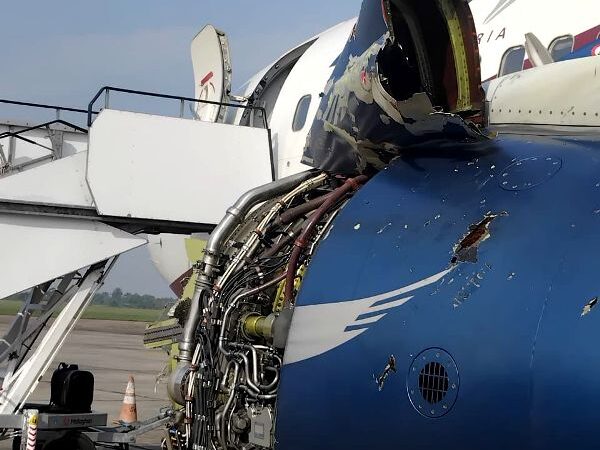Lagos Airport Records 54 Bird Strikes, 1st Half, 2022
A total of 54 bird strike incidents occurred at the Murtala Muhammed Airport (MMA), Lagos between January and June 2022. This is out of the 93 bird strike incidents that have occurred across Nigerian airports within the period.
The Head of Bird/Wildlife Hazard Control at Nigerian Civil Aviation Authority (NCAA), Mr. Azike Edozie who disclosed this while speaking at the workshop organized by the Search and Rescue Mission of the Nigerian Airspace Management Agency (NAMA) on Wednesday in Lagos, decried the high incidents arising from bird strike incidents in the industry.
He however said that the responsibility of keeping the airspace safe from birds incidents lied with every stakeholder in the industry, including airline operators, security agencies and the Federal Airports Authority of Nigeria (FAAN).
He expressed hope that the respective agencies would find a lasting solution to the menace soon, lamenting that airlines were losing million of dollars to the incident annually.
He said: ”My record shows that we have had at least 93 bird strike incidents in all our airports between January this year to June. And out of this number, 54 of it happened in Lagos Airport alone, which represents about 70 per cent of the total occurrences.
”We all have to proffer a solution to this menace and I do hope we have a lasting solution to it because everyone, especially the airlines are losing money.”
Also, Mr. Adetunji Adetutu, Head of Unit, Bird Control, FAAN, Murtala Muhammed International Airport (MMIA), Lagos in his presentation pointed out that no airline was immuned from the incident of bird strikes.
Adetutu explained that FAAN as the airport landlord was doing its best to curb the spread of the incident through the procurement of modern equipment, which he said had gone a long way to reduce its impacts.
He also blamed some of the pilots for the high bird strike rates in the industry, stressing that some of the pilots were always in a hurry to depart an airport for the other and violate the instructions of Air Traffic Controllers (ATC)
Insisted that it was necessary for the airlines and their pilots to also have a change of culture by adhering to the instructions issued by ATCs.
According to him, 98 per cent of bird strike incidents occurred at the airports, especially when taking off and landing.
He said: ”The final say on what happens to the aircraft lies with the pilots. Until the ATC gives clearance for pilots to depart or land, it is necessary for pilots to listen to their advice.
”Airline operators should have a change of culture on how we carry out our duties. It’s the suitability of the environment that brings birds to the airport environment. We have water, shelter and food around the airports. Runway should be free of activities at take- off and landing.”
He emphasized further that most of the birds that cause havoc at the airports migrate from other continents to Africa at a particular time of the season.
Also, Mr. Olanrewaju Iwalaye, Search and Rescue Mission Coordinator, NAMA, said it was necessary for all stakeholders to curb the actinides of bird strike incidents at the airport with the procurement of advanced equipment.
Iwalaye, however, observed that FAAN had in recent times improved with the procured of equipment to reduce the incident.
He added that the same programme was simultaneously going on in all the major airports across the country, including the Port Harcourt International Airport (PHIA), Omagwa, Aminu Kano International Airport (AKIA), Kano and the Nnamdi Azikiwe International Airport (NAIA), Port Harcourt.
‘We need to find a way to address this challenge. Birds are in their natural habitant and most of our airports are built close to the forest.
‘Apart from birds, we also have wildlife animals, which are also strikes. We hope to propose on mitigation in order to address it. We also need to know the activities of birds too. Statistics that was given earlier indicates that 93 bird incidents were recorded as at September 17, 2022, but 32 of this occurred in just two months.”






